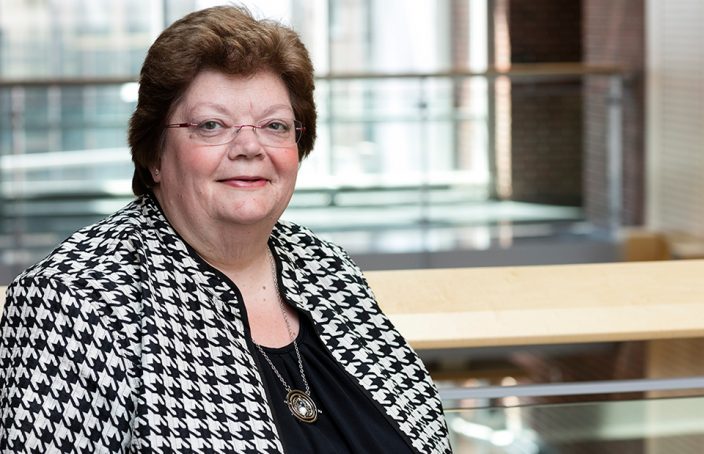WHEN THE TRAINEES BECOME THE LEADERS
Written By: Mary Lynn McPherson, PharmD, MA, MDE, BCPS, CPE, Professor in PPS
The School of Pharmacy developed the world’s first Post-Graduate Year 2 (PGY-2) Pharmacy Practice Residency in Palliative Care in 1997. Twenty years later, it is still going strong. Palliative care, which includes hospice care, aims to improve the quality of life for patients and their families affected by serious illness. It addresses pain and suffering, including physical, psychosocial, and spiritual care. As the program’s director, I am inordinately proud of this program, its 21 graduates, and the two residents who just started their journey with us earlier this month.
A New Generation of Palliative Care Practitioners
Perhaps one of the most gratifying aspects of my role as the program’s director is being able to witness the maturation of new residents into caring, seasoned practitioners over the course of just one year. It fills me with tremendous joy to see where our graduates have taken their careers and how, in Johnny Appleseed fashion, they have spread the word and practice of “pharmacopalliation” across the country through their work at schools of pharmacy, tertiary care centers, primary care, the Food and Drug Administration, and other organizations. I always warn my residents that they will never get away from me, and continue to interact with them long after they have completed our program. In fact, some of them are now teaching in the School’s new, online Master of Science and Graduate Certificate Program in Palliative Care.
However, our residents have not only attained impactful positions in the field, but also achieved many honors and awards. One example is our most recent residency graduate, Kelly Mendoza, PharmD, who developed an online educational program focused on the use of medical cannabis in relieving pain and other troubling symptoms in advanced illness.
Questions that Need Answers
As many people are aware, cannabis has been legalized for medicinal and/or recreational purposes across more than half of the country, despite it still being scheduled as an illegal controlled substance at the federal level. Understandably, this results in quite a bit of confusion among practitioners. About 18 months ago, a hospice nurse from Oregon contacted me. “Here’s my question,” she said. “If I’m making a home visit to a patient using medical cannabis in front of me, will I be safe to drive to my next patient’s house?” That’s a great question, I thought. The more we discussed it, the more it became evident that this nurse, as well as other hospice and palliative care practitioners, had many questions about medical cannabis.
After briefly discussing this issue, Dr. Mendoza decided that she wanted to rectify this lack of education among health care professionals in hospice and palliative care. Using solid principles of instructional design, Dr. Mendoza conducted an educational needs assessment, identifying six core domains of knowledge where hospice and palliative care practitioners wished to develop competence.
Based on this needs assessment, Dr. Mendoza developed a three-module online educational activity for hospice and palliative care professionals. She developed a pre- and post-course assessment to evaluate practitioners’ attitudes, self-perceived skill, and knowledge in the six core content areas. The results were very impressive – participants felt all six content areas were very important before and after taking the course. Self-perceived competence in all domains increased dramatically, as well as knowledge — all to a statistically significant degree.
Results that Resonate
Dr. Mendoza submitted her research project as a poster presentation to the International Conference on Opioids, which was accepted and presented in June. There were many impressive poster presentations at this well-attended international meeting, and Dr. Mendoza was delighted to learn that her poster was one of three selected as “Best of Show,” and would be spotlighted in an oral presentation to the entire assembly on the last day of the meeting.
I am so proud of Dr. Mendoza and her research project on multiple levels. Research that is practical, such as this project, is prized above all else. Dr. Mendoza conducted a comprehensive assessment — an often-overlooked step — and delivered a highly user-friendly educational intervention. She showed very positive outcomes, which will hopefully result in the appropriate use of medical cannabis in the future and enhanced pain and symptom management of terminally ill patients.
Congratulations to Dr. Mendoza on the successful execution of a highly relevant and practical research project that resulted in humbling recognition at an international pain conference! We will miss her as she moves back to the west coast in July to continue her career, but we know she will take a little bit of the University of Maryland with her.

